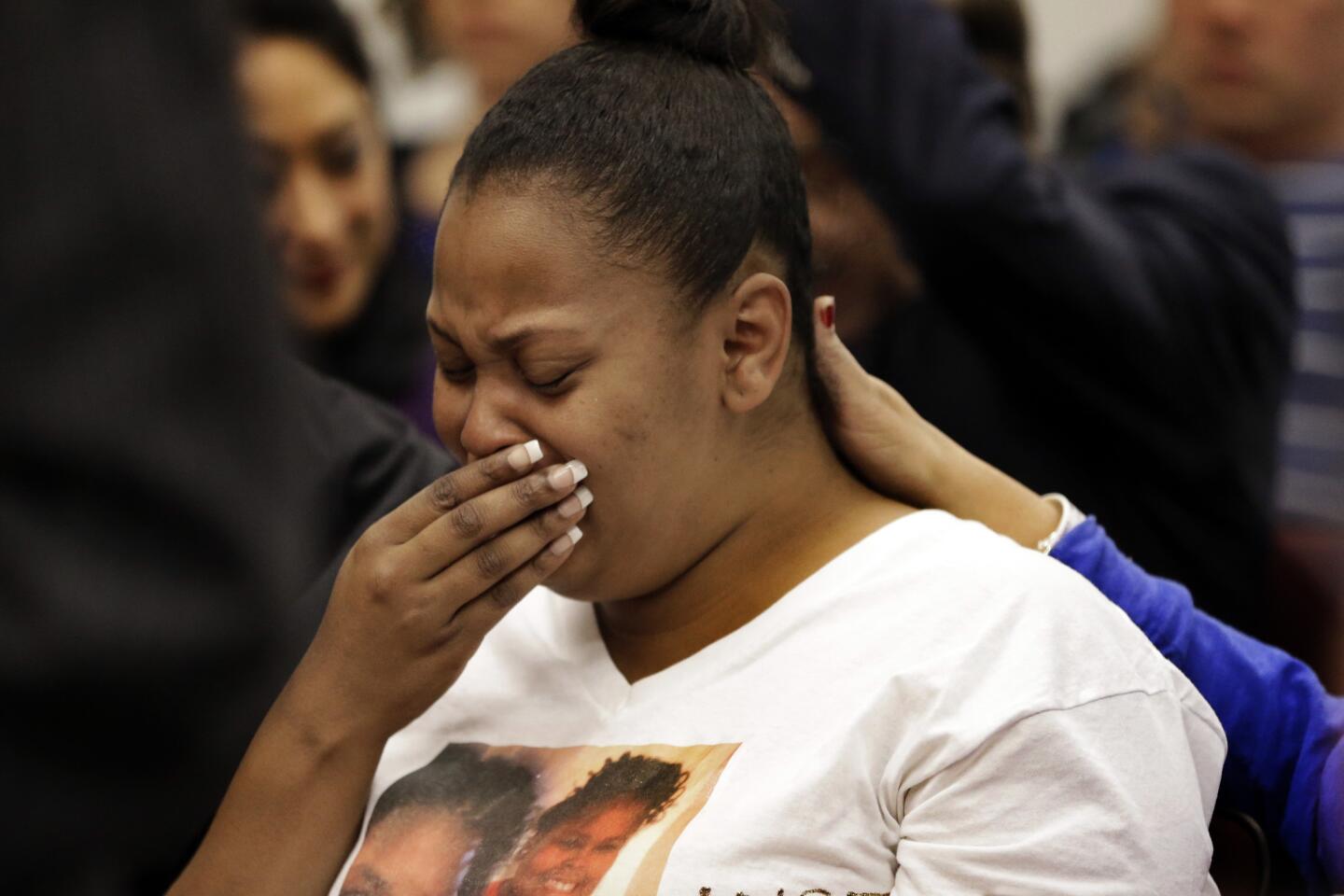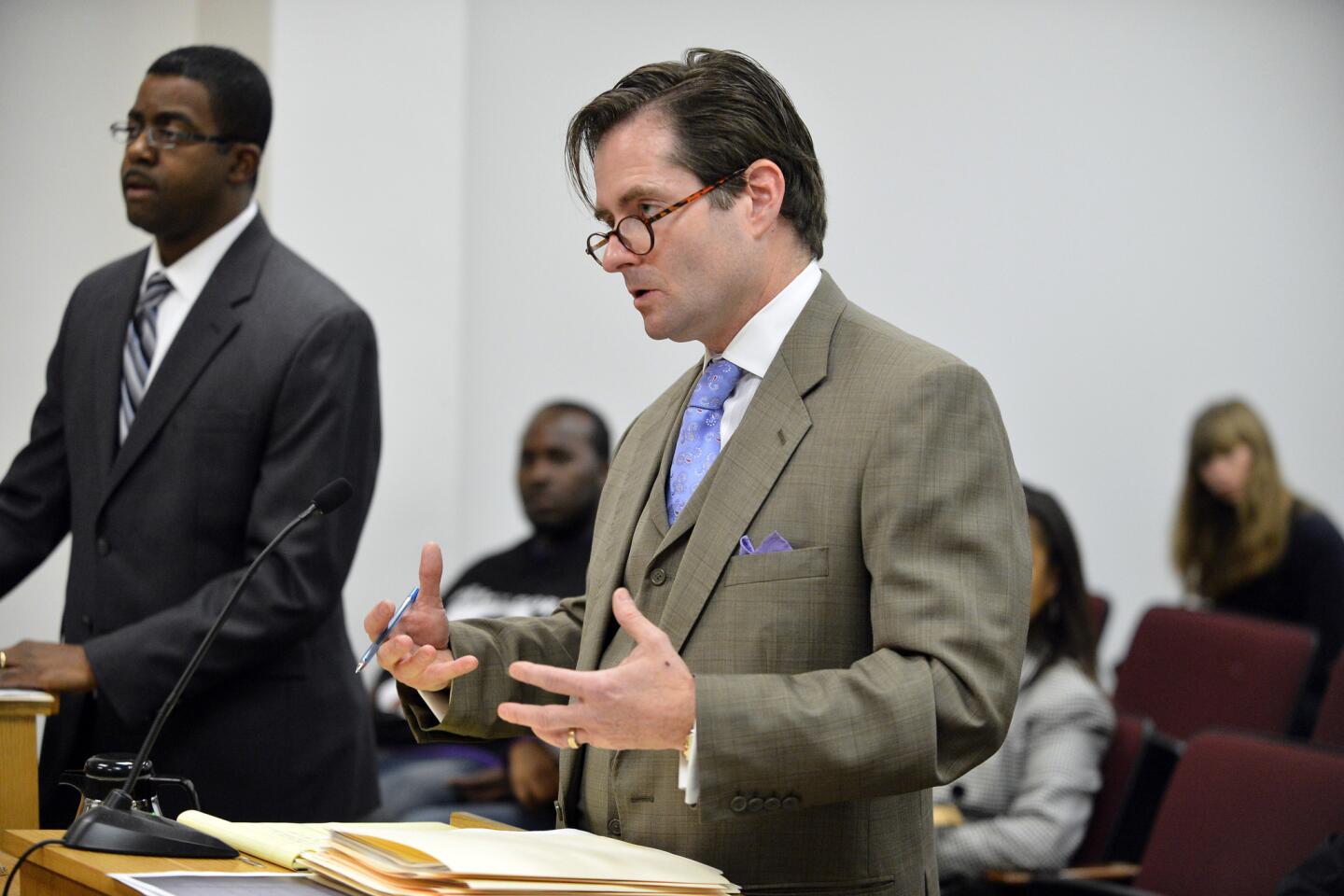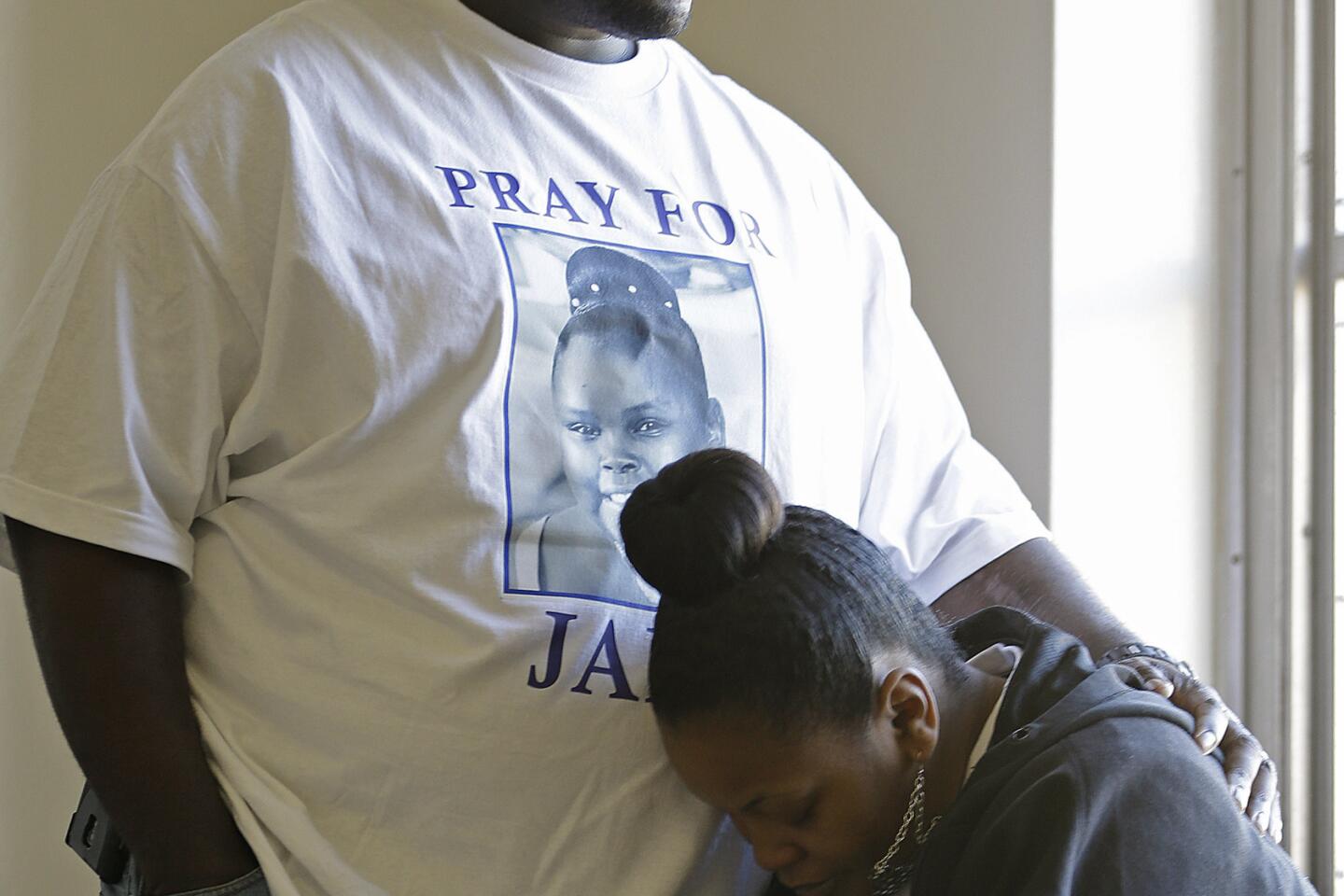‘Inevitable’: As Jahi McMath deteriorates, brain-death case nears end
The lawyer for the family of Jahi McMath said this week the 13-year-old girl’s body had deteriorated badly since she was declared brain-dead at an Oakland hospital.
But it’s an inevitable end, according to a physician’s declaration filed in court during the battle to keep her on a ventilator.
The deterioration of Jahi’s body is now the only possible course and “became inevitable the moment she died,” according to a court declaration from Dr. Heidi Flori, a critical care physician at Children’s Hospital & Research Center Oakland, which had sought to remove the teen from the ventilator after she was declared brain dead Dec. 12.
PHOTOS: Grief, determination in Jahi McMath case
“The medical team and I believe that additional and more dramatic signs of the body’s deterioration will continue to manifest over time, regardless of any procedures and regardless of any heroic measures that any facility in the country might attempt,” Flori said in the declaration filed in U.S. District Court.
“Mechanical support and other measures taken to maintain an illusion of life where none exists cannot maintain that illusion indefinitely,” she added.
Jahi underwent surgery Dec. 9 to remove her tonsils, adenoids and uvula at Children’s Hospital Oakland. She was declared brain-dead three days later after going into cardiac arrest and suffering extensive hemorrhaging in her brain.
At least three neurologists confirmed Jahi was unable to breathe on her own, had no blood flow to her brain and had no sign of electrical activity.
But Jahi’s family members -- who won a court order keeping her on a ventilator, and eventually permission to transfer her to an undisclosed care facility -- have insisted she is alive as long as her heart is beating.
However, the family’s attorney, Christopher Dolan, told the San Jose Mercury News this week Jahi’s body has deteriorated badly in the weeks since she was declared brain-dead.
“She’s in very bad shape,” he said, adding examinations show Jahi’s medical condition “is not good.”
Bodies of the brain-dead have been maintained on respirators for months or, in rare cases, years. However, once cessation of all brain activity is confirmed, there is no recovery, Rebecca S. Dresser, professor of law and ethics in medicine at Washington University in St. Louis, told The Times.
Dresser also served on a presidential bioethics council that in 2008 reaffirmed “whole-brain death” as legal death.
Brain cells die without blood flow and autopsies in such cases have shown the brain liquefies.
In the court declaration filed by Flori, she said any measures to help Jahi will only slow post-mortem deterioration. Jahi’s body is also unable to regulate her temperature and “blankets are needed to maintain a temperature of greater than 35 degrees Celsius (95 degrees Fahrenheit).”
“The additional medical interventions Petitioner proposes are unprecedented. They simply will not bring her back to life nor enable others to do so,” according to the declaration.
After marathon negotiations with a federal magistrate, Jahi’s family members received approval to remove her body, while attached to a ventilator, from Children’s Hospital Oakland on Sunday.
The girl was released first to the Alameda County coroner and then to the family, and is now the responsibility of her mother, who has moved her to a facility that has not been identified because of threats Nolan said he and her family have received.
The courts have so far agreed that Jahi is dead. The coroner Friday issued a death certificate listing Dec. 12 as the date of death.
Twitter: @aribloomekatz | Facebook
More to Read
Sign up for Essential California
The most important California stories and recommendations in your inbox every morning.
You may occasionally receive promotional content from the Los Angeles Times.














